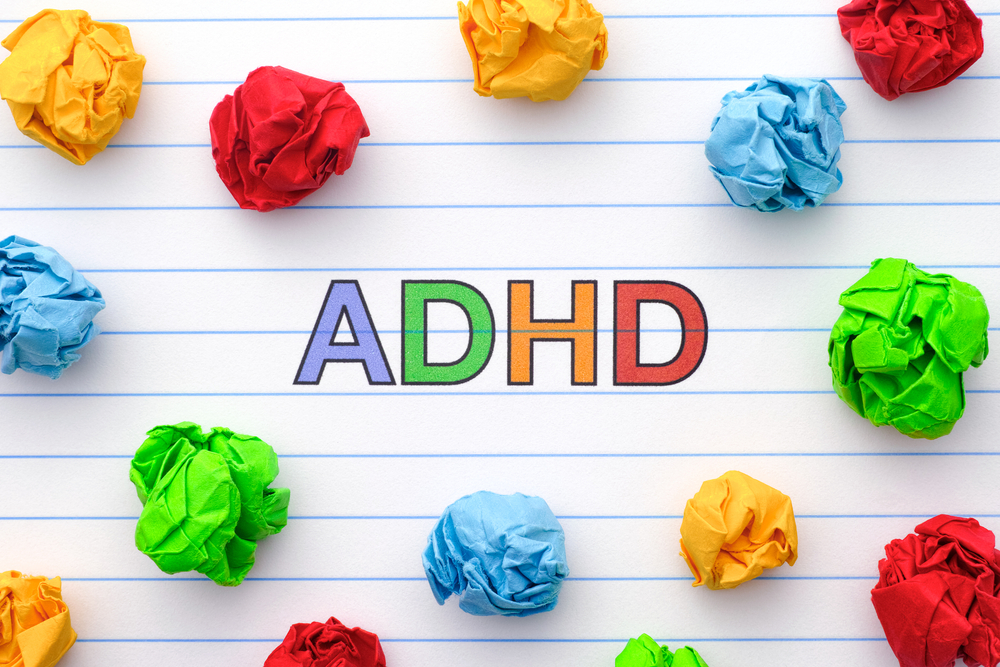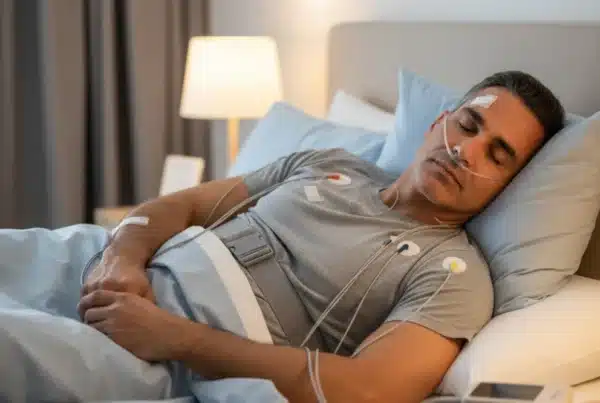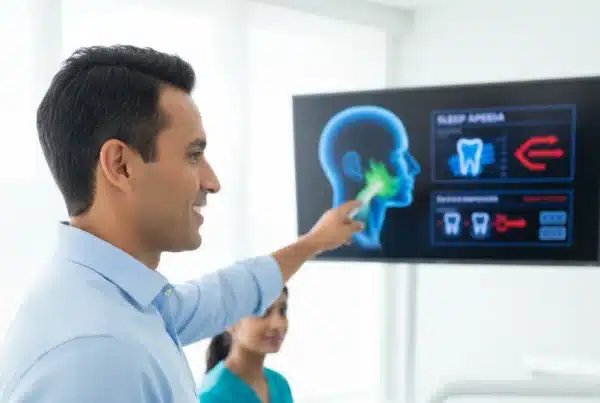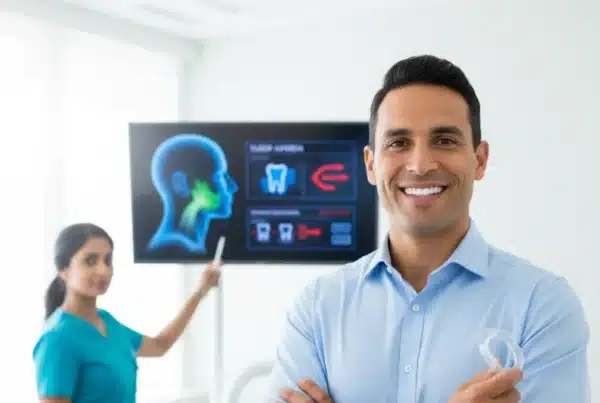Are you searching for effective ADHD therapy? Attention Deficit Hyperactivity Disorder (ADHD) is a widespread condition that makes it tough for kids to focus, manage their impulses, and stay still.
Children with ADHD often struggle with paying attention, are overly active, and act impulsively. These symptoms can negatively impact their daily activities, school performance, behavior, and self-esteem.
Although the exact causes of ADHD are still unknown, experts believe that genetics and brain chemistry imbalances play significant roles in its development.
Moreover, environmental factors might also contribute to ADHD. These include brain injuries, exposure to alcohol and tobacco during pregnancy, being born prematurely, and having a low birth weight.
Additionally, poor sleep and airway issues are increasingly recognized as contributing to or worsening ADHD symptoms.
What is ADHD?
ADHD stands for Attention Deficit Hyperactivity Disorder. It’s a neurodevelopmental condition often diagnosed in children and can extend into adulthood. ADHD is marked by several distinct behaviors:
- Inattention: Kids with ADHD find it hard to focus. They may forget details, get distracted easily, and not follow instructions well.
- Hyperactivity: Children with this disorder are unusually energetic. They may fidget, talk a lot, or not stay seated.
- Impulsivity: These children act quickly without thinking. This can lead to interrupting others, making sudden decisions, or taking risks without planning.
ADHD affects more than just school performance; it can impact all areas of life, including relationships and job success. Healthcare professionals diagnose ADHD by talking to parents, teachers, and observing the child’s behavior.
Effective management of ADHD involves medications, behavior therapy, and educational support. Early and proactive treatment helps individuals with ADHD lead successful lives.
The Child’s Experience With ADHD
- Focus Issues: Kids with ADHD often have trouble keeping their attention on tasks. This makes schoolwork hard and affects their ability to enjoy activities that require sustained focus. Homework can feel overwhelming, and hobbies may go unfinished, adding stress to daily life.
- Impulsivity: Acting on impulse, without thinking about the consequences, leads to social issues and safety concerns. In school, this behavior might result in conflicts with peers. At home or outdoors, it can lead to accidents or risky actions.
- Hyperactivity: Excessive energy makes it difficult for children with ADHD to stay still. They might struggle during quiet times in school or disrupt family activities, which can frustrate others and lead to tension.
- Social Challenges: Difficulty in understanding social cues can isolate children with ADHD. Misreading situations or reacting inappropriately can alienate peers and make it hard to form lasting friendships.
- Emotional Regulation: Intense emotions can flare up suddenly, leading to outbursts or tears. Managing these emotions is challenging, often causing embarrassment and further emotional distress.
- Low Self-Esteem: Being frequently corrected by adults or teased by peers can make a child feel different and inadequate. This can severely impact their confidence and willingness to try new things.
- Time Management: Poor organizational skills often mean children with ADHD struggle to manage their schedules and responsibilities. This leads to missed assignments and difficulty keeping up with daily routines, causing stress at school and home.
Each of these challenges can affect a child’s academic performance and personal life significantly, requiring understanding and support from those around them.
ADHD and Sleep Apnea: What’s the Connection?
Emerging research shows a strong link between ADHD and sleep issues, which can mimic and exacerbate ADHD symptoms. Children with ADHD often suffer from sleep-related conditions such as:
- Sleep apnea – disrupted breathing during sleep, leading to lower oxygen levels.
- Restless leg syndrome – causing discomfort in the legs, making it hard to fall asleep.
- Delayed sleep phase syndrome – difficulty falling asleep at a suitable bedtime.
- Excessive daytime sleepiness – extreme tiredness during the day.
These disorders reduce both the quality and quantity of sleep, impacting the brain’s ability to regulate attention, emotions, and impulses, thus worsening ADHD symptoms. Additionally, ADHD medications like Adderall and Ritalin may disrupt sleep, contributing to a challenging cycle of sleep interruption.

Could Your Child’s ADHD Be Linked to a Sleep Disorder?
If your child shows symptoms of ADHD, it’s crucial to consider if a sleep disorder is a contributing factor. Dr. Eugene Azuma at Azuma Dental in Honolulu, HI, offers a simple quiz to help determine if your child might have a sleep issue like sleep apnea impacting their condition:
- Does your child snore loudly or stop breathing while sleeping?
- Do they wake up often at night or struggle to fall asleep?
- Are they excessively sleepy during the day or need frequent naps?
- Do they experience bedwetting or sleepwalking?
- Do they wake up feeling unrefreshed, even after a full night’s sleep?
- Do they have trouble concentrating or controlling impulses?
Answering ‘YES’ to any of these might indicate an undiagnosed sleep disorder needing further evaluation.
ADHD Treatments and Sleep Disorder Management
Addressing underlying sleep disorders can enhance ADHD treatment outcomes. Here are effective approaches to manage both ADHD and associated sleep problems:
Behavioral Sleep Interventions: Improving sleep habits can greatly benefit children with ADHD. Establishing a consistent bedtime, reducing screen time before bed, and creating a calm sleeping environment are key steps. Relaxation techniques like reading or warm baths before bed can also be beneficial.
Correcting Sleep Disordered Breathing: For children diagnosed with sleep apnea, prompt treatment is essential. Typical treatments include removing enlarged tonsils and adenoids or using CPAP machines. Dr. Azuma also offers innovative solutions like Vivos oral appliances, which non-invasively reposition the jaw to enhance airway openness and improve breathing during sleep.
Natural Remedies and Diet Adjustments: Limiting sugar, increasing intake of magnesium, zinc, and omega-3 fatty acids, and using herbal remedies like chamomile or valerian can support better sleep and ADHD management. Essential oils and melatonin might also improve sleep onset and quality.
Medication Management: Reviewing and adjusting ADHD medications with your child’s doctor is crucial to minimize sleep disruptions. Changes in dosing times or medication types might be necessary to reduce side effects affecting sleep.
Take Action Today with Dr. Eugene Azuma
Dr. Eugene Azuma understands the challenges that come with ADHD. That’s why our ADHD treatment programs are designed to address both the symptoms and the underlying issues, prioritizing your comfort and overall well-being.
ADHD treatment can enhance your focus, boost self-esteem, and improve your interactions with others. We are committed to empowering you with the strategies you need for a balanced and fulfilling life. Schedule you free consultation today!
Here’s our approach:
- Comprehensive Consultation: Begin with a detailed evaluation of your specific needs, utilizing a holistic approach to understand the full scope of your ADHD.
- Personalized Treatment Plan: DR. Eugene Azuma develops a customized treatment strategy, focused on reducing ADHD symptoms and enhancing daily functioning.
- Supportive Aftercare: We provide ongoing support and guidance to ensure your treatment is effective and sustainable.
Don’t wait—book your free consultation today and visit our website for more information on our dedicated approach to ADHD therapy. Embrace a life of improved focus and greater peace of mind for your child.

Contact Us
Phone:
(808) 528-2221 (office)
808-528-1116 (fax)
Address:
1060 Young St. Suite 220
Honolulu, HI. 96814



